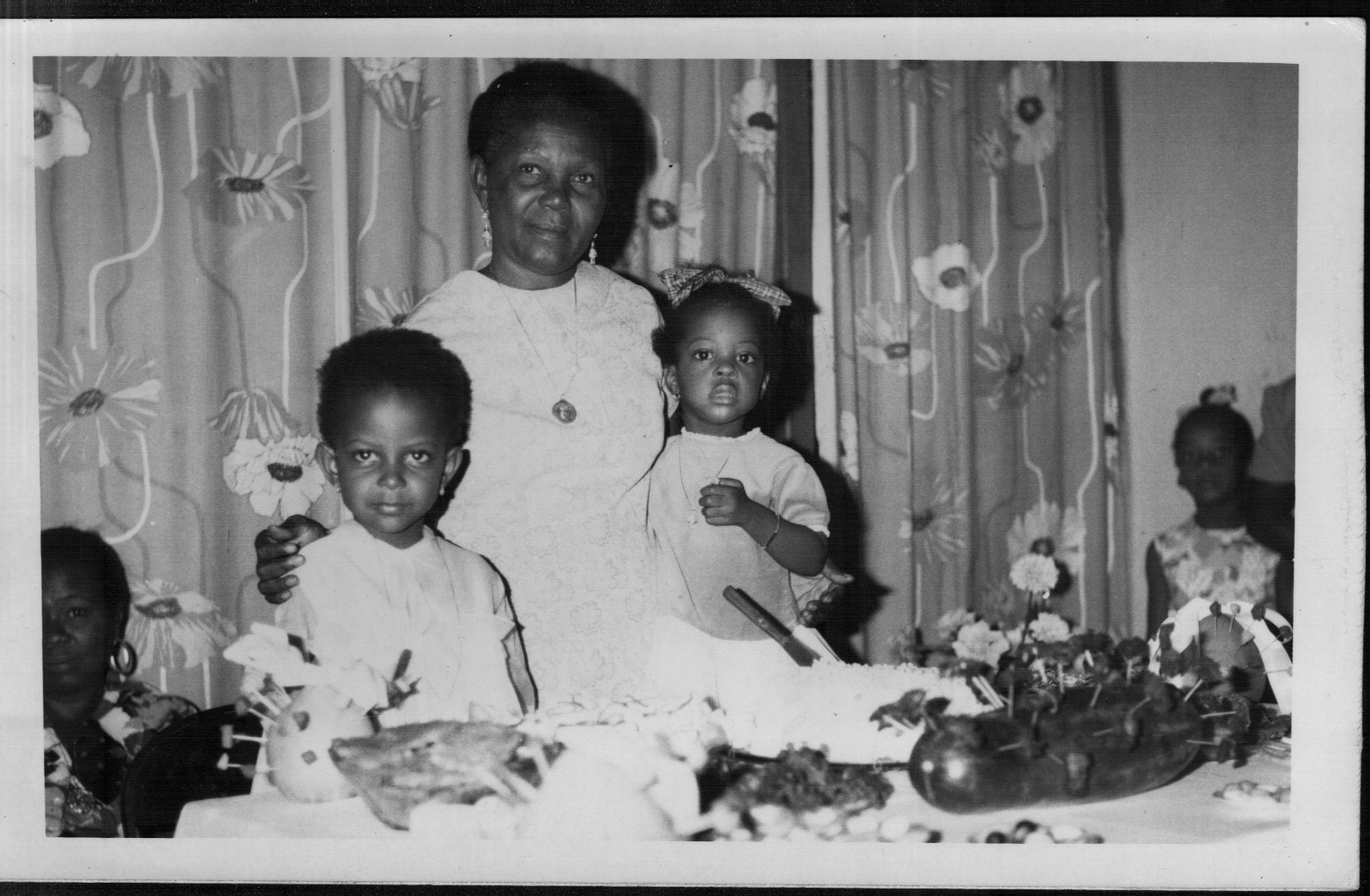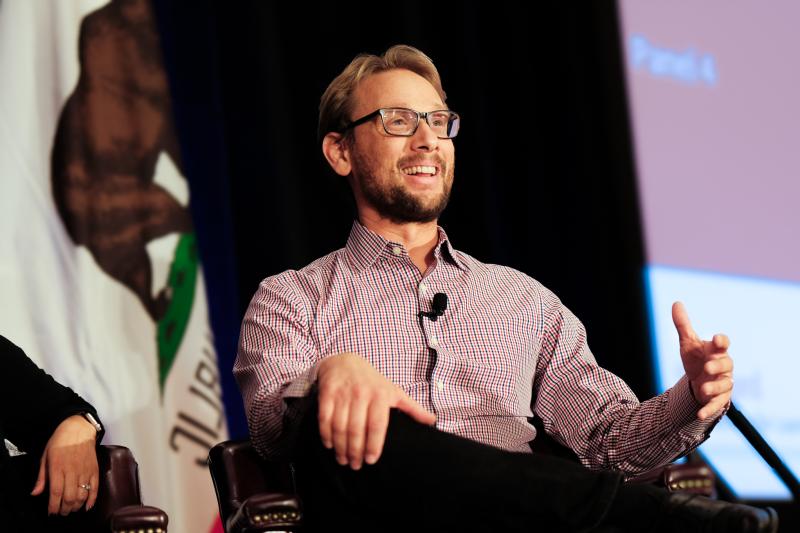
Stanford alumna launches ambitious effort to boost college graduation rates
 Alexandra Bernadotte advocates using both high-tech and personal networking for coaching students.
Alexandra Bernadotte advocates using both high-tech and personal networking for coaching students.
As a high school student, Alexandra Bernadotte, MA ’07, dreamed of going to an Ivy League college. That dream spiraled into a nightmare, however, in her freshman year at Dartmouth.
Like many who are the first in their families to go to college, she found herself lost at sea in the campus social life and struggling to keep up academically. “Each year thousands of students, with backgrounds like mine, start college believing they’re prepared — and then they stumble and fall,” said Bernadotte, who immigrated as a child to the United States from Haiti.
Recent research found that low-income students entering college are one-fifth as likely to complete school as those from the wealthiest quartile. Federal data shows that while 62 percent of white students earn a bachelors degree in six years, it’s significantly less for under-represented groups: 40 percent for African Americans and 51 percent for Latinos.
Bernadotte mentioned such figures during an interview in February in the San Francisco office of Beyond 12, a nonprofit organization she founded to help traditionally underserved students to succeed in college. Launched in 2009, it offers a unique set of tools and services that integrate personalized coaching with technology such as apps and social networking. At the start of the year it was selected as one of the three finalists for the highly competitive $5 million Robin Hood College Success Prize.
Bernadotte knows personally that Beyond 12 offers the type of support that can be pivotal in a student’s life. When she hit her rough patch at Dartmouth, she was overwhelmed with self-doubt and shame, and she struggled before asking for help. She wound up graduating with her class.
“My story has a happy ending,” she said. “I was able to turn things around, but it took years for me to unravel the economic and social dynamics that can lead to this kind of crisis.”
 Alexandra Bernadotte, MA ’07, (left) was cared for by her grandmother (center) in Haiti until she was 8 years old.
Alexandra Bernadotte, MA ’07, (left) was cared for by her grandmother (center) in Haiti until she was 8 years old.
While that freshman-year experience set the stage for a career in education, the specific decision to start Beyond 12 was triggered two decades later by a letter that Bernadotte received: It was written by Bernadotte to herself for a course — “Leading Social Change” — that she was taking while a masters student at Stanford Graduate School of Education. (Each student’s letter was mailed a year later.)
“The assignment was to write to yourself about where you fit into the social change movement,” she explained. “In mine, I said that if I hadn’t started something huge by the time I received it, I was just chicken.”
Reading that sentence hit home. “That was the day I decided to found my own organization,” she said.
Boiling an ocean?
Bernadotte had been accumulating the skills and knowledge needed to create this start-up for years before taking the plunge.
After graduating from Dartmouth in 1992, she was an operations manager at the World Health Organization; then a vice president at Explorica, a start-up devoted to educational travel; next the executive director of Princeton Review’s Silicon Valley Office; and then the executive director of Foundation for a College Education, a community nonprofit devoted to improving college access and success for children from low-income families in East Palo Alto, Calif.
While working at Foundation for a College Education, Bernadotte both managed the organization and worked directly with teenagers. She saw how the mentoring and assistance that she and her colleagues provided changed lives — many of the students went on to graduate from college. But she also developed a sense that something more was needed. “It felt like trying to boil an ocean,” she said of the work she was doing in 2006. “There were millions of kids who needed help.”
The quest for a systemic solution led Bernadotte to the GSE’s Policy, Organization, and Leadership Studies masters program. There she tapped the expertise of the nation’s foremost scholars and practitioners dedicated to improving equity in educational opportunities. She also honed her management and entrepreneurial skills with courses at Stanford’s Graduate School of Business.
“She always sat at the front of the class,” recalled GSE professor Milbrey McLaughlin of Bernadotte. “She is one of the most focused people I’ve ever met.”
McLaughlin is the founder of Stanford’s John W. Gardner Center for Youth and Their Communities, which is a leader in research and development of College Readiness Indicator Systems, along with a host of other youth-related programs. Bernadotte’s access to such knowledgeable faculty and the GSE curriculum, culminating in a masters project, helped her to lay the groundwork for Beyond 12. “She squeezed every ounce she could from her experience here,” McLaughlin said.
“Super smart” and “absolutely charming” is how McLaughlin described her.
 In a TEDX talk, Alexandra Bernadotte, MA ’07, talks about how she wants her son Lukas to grow up in a nation where income and zip code do not establish children's educational destiny. (See below for the TEDX talk.)
In a TEDX talk, Alexandra Bernadotte, MA ’07, talks about how she wants her son Lukas to grow up in a nation where income and zip code do not establish children's educational destiny. (See below for the TEDX talk.)
By the time Bernadotte left Stanford, she had a fresh perspective on how to tackle the challenge of getting needy students to graduate college. She spent the next year as an associate partner at NewSchools Venture Fund, where she helped other organizations’ efforts to prepare students for college. Then she received the life-changing letter, and she drew up the plan for Beyond 12 as an Entrepreneur in Residence at NewSchools.
The bottom line for Bernadotte: More attention, information and resources were needed to support students as they made the transition into higher education and to analyze why so many were failing to graduate college.
An unexpected setback
Bernadotte knows a thing or two about transitions.
Born in Port-au-Prince, she spent her early childhood in Haiti. Her parents had immigrated to the United States when she was three-months-old, so her grandmother cared for her. At age 8 she was reunited with her parents and sister in the Dorchester section of Boston, later moving to Mattapan, another of the city’s blue-collar neighborhoods. Her father worked at a manufacturing plant that produced window films, and her mother was a phlebotomist in a hospital lab. They told her that college was the ticket to a better life.
With steely resolve and charismatic warmth, Bernadotte worked hard and excelled in school, getting the grades, scores and resume that would ensure she could go to college. Yet neither she nor her parents knew much about schools, let alone had a top choice, until one evening when her mother rushed home from her job. “You have to go to this place called ‘Dart Mouth!’” her mother exclaimed. Apparently the doctors at the hospital where she worked had been talking about where they were sending their kids. “That was how the dream of a specific institution was born — through an overheard conversation in the emergency room of a hospital,” Bernadotte said. “Since neither of my parents went to college, it was this abstract thing we talked about. We didn’t know how I was going to get there or how we would pay for it, just that I had to go.”
Later, when the Dartmouth acceptance letter arrived, Bernadotte remembered how the family “celebrated as though we’d won the lottery.” Aunts, uncles and cousins caravanned to Hanover, New Hampshire, in the fall of 1988 to see her off. “We thought the hardest part was over,” she said.
But Bernadotte foundered in a culture that was alien to her. “Being from the inner city, I wasn’t prepared for the wealth and other social elements,” she said. Although she had excelled in challenging classes in high school, she suffered academic setbacks that, while not unusual for college freshmen, staggered her. Unlike many of her Dartmouth classmates, she didn’t have anyone close to her who had experienced such a dive and could advise her. “I was so ashamed,” she said.
Bernadotte ultimately identified professors to be her mentors, and she developed a strong network of students of color who were having similar troubles. Her parents and relatives rallied behind her, but it’s difficult to describe how scared she was to reach out for help. “Telling my family that I was failing was the hardest conversation I’ve ever had,” she said.
Reaching college students
In June 2007, close to 20 years after her bombing her freshman year at Dartmouth, Bernadotte received her masters degree from Stanford, along with a more global understanding of what was needed to help more disadvantaged students to complete college. She saw how high schools and youth organizations had focused on getting underserved students to the gates of academe, but had not been able to follow through once the students began their courses. Too many of the college-access programs had no way to understand what was happening to their students once they entered college.
“The data trail ended at high school graduation,” Bernadotte said.
This problem was compounded by constraints on these programs’ coaching approach. How could individualized coaching be scaled to serve millions of K12 students? What could these programs do to support students as they make the difficult transition into college?
To address these issues, Beyond 12 has developed a platform to collect, analyze and share students’ performance data from middle school through college and then career. It includes:
- an “alumni tracker” that allows pre-collegiate organizations to gather their alumni’s college data so they can evaluate their programs’ efficacy;
- a mobile app, MyCoach, that helps college students stay organized and provides deadlines, academic resources and other information specific to students’ schools;
- an analytics engine that lets Beyond 12 create a comprehensive student risk and success profile.
Beyond 12 also has created a network of postsecondary coaches who provide one-to-one services to students, starting the summer before freshman year in college and running through the end of sophomore year. The coaches are recent graduates of the same or similar colleges that their students are attending. They stay in regular contact with each other through Skype, Google Hangout, telephone, email, text messaging and the MyCoach app.
While most of Beyond 12’s current revenues come from philanthropy, it aims to supplant donations through sales of its data and support services to high schools, colleges and other groups.
On the February day when Bernadotte was interviewed, she had commuted from her home in the East Bay, where she lives with her husband and her toddler son. She oversees a 12-person team, and their office in the San Francisco Chronicle building is part of The Impact Hub, a busy open space with other next-generation social entrepreneurs who are working to improve availability of clean water, advance positive psychology, produce films to promote social change, and adopt measures to build the sharing economy, among other causes.
Bernadotte fits comfortably in this neighborhood of bold ambitions and big dreams, and she already has been recognized as something of a rock star. In 2012 she won a Jefferson Award for Public Service and was named an Ashoka Fellow, one of the highest honors for social entrepreneurship. In 2014, Beyond 12 was chosen by Fast Company magazine as one of the world’s 10 most innovative companies in education, and it was selected as one of the finalists of the Google Bay Area Impact Challenge, winning a grant of $250,000. The nonprofit is now preparing for the final round in the Robin Hood award competition — a randomized control trial measuring which of the three finalists can most improve graduation rates.
Beyond 12’s tools are already being used to track the progress of more than 40,000 college students, and it provides coaching services to nearly 2,000 college students.
“Our goal is to annually track over 200,000 and coach 10,000 students by 2020,” she said.
Bernadotte’s confidence may arise from the nonprofit’s well-planned operating model, but that’s just part of the picture. Her vision is grounded in students’ desire to pursue educational opportunities, and she knows how powerful — and fragile — dreams of college can be.
“I want to be sure that other students don’t face the same struggles that I did,” she said.
Marguerite Rigoglioso writes frequently for the website and publications of Stanford Graduate School of Education. All of the above photographs are courtesy of Alexandra Bernadotte.



